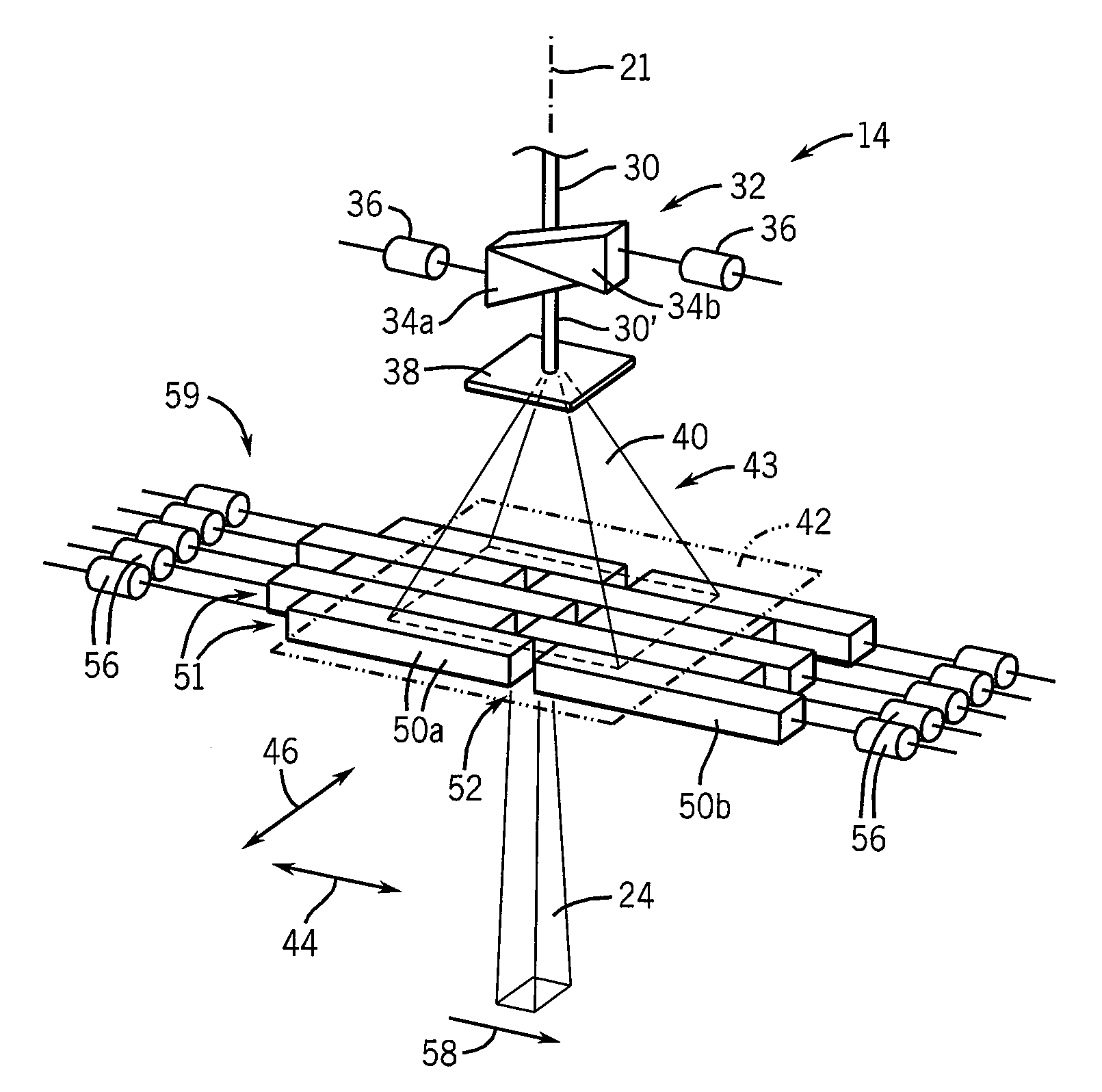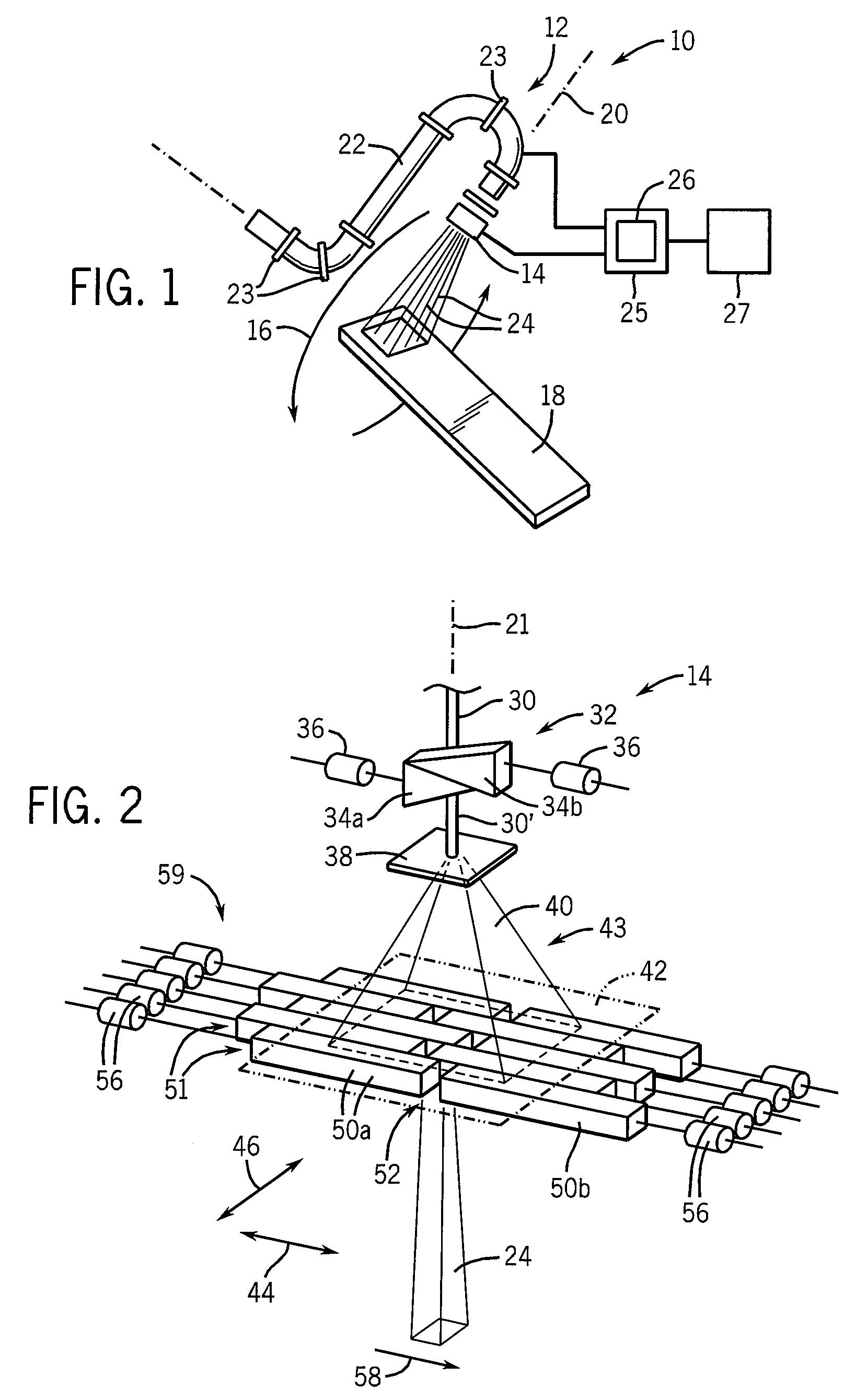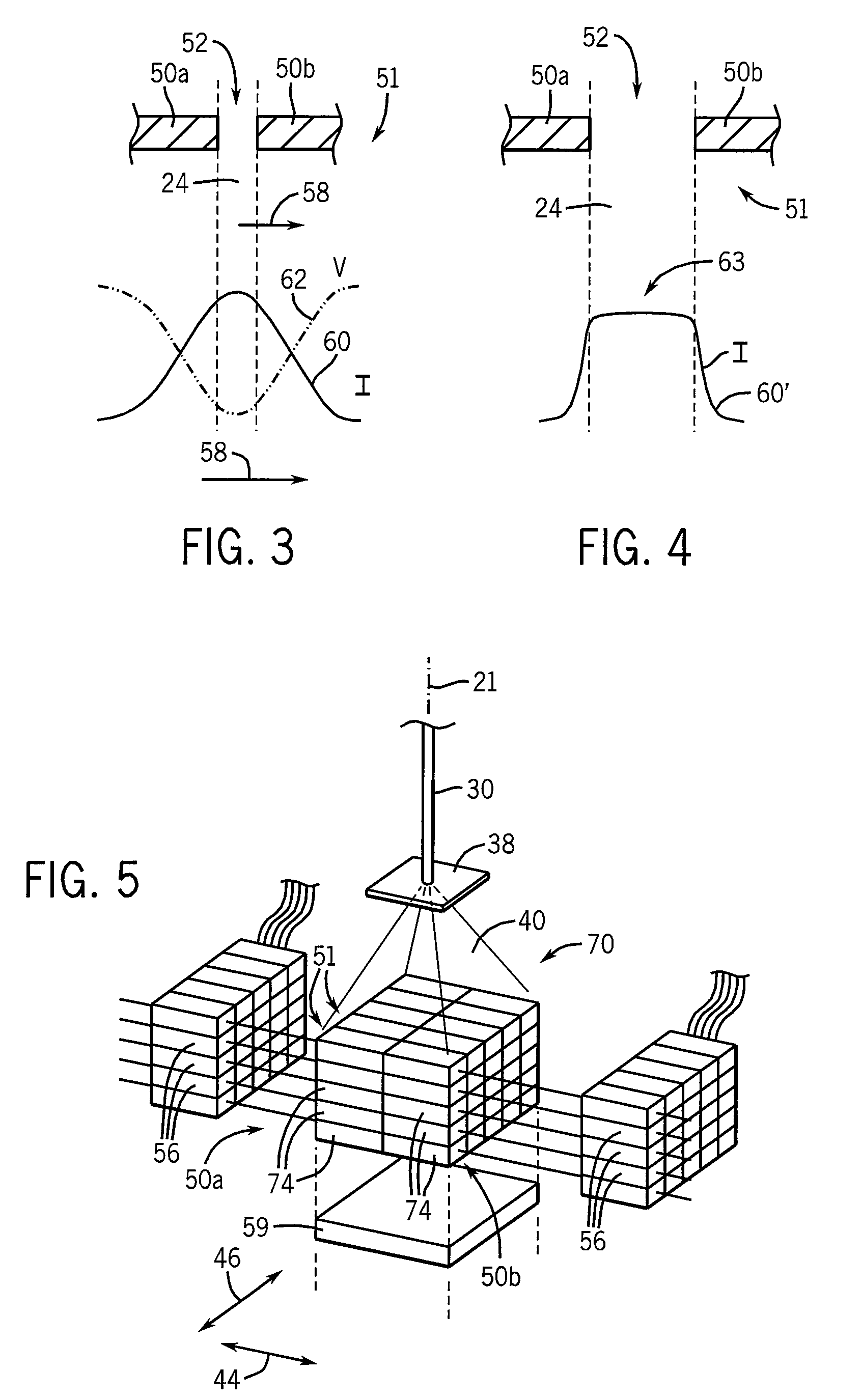Scanning aperture ion beam modulator
a technology of ion beam and aperture beam, which is applied in the direction of beam deviation/focusing by electric/magnetic means, instruments, and therapy, etc., can solve the problems of requiring the construction of special compensators, fast and yet less precise, and inconvenient treatment, so as to reduce or eliminate the need for custom compensators. , the effect of increasing the treatment speed
- Summary
- Abstract
- Description
- Claims
- Application Information
AI Technical Summary
Benefits of technology
Problems solved by technology
Method used
Image
Examples
Embodiment Construction
[0039]Referring now to FIG. 1, a proton therapy machine 10 may include a gantry 12 having a modulator 14, both of which may orbit 16 about a patient (not shown) who is supported on a patient support table 18.
[0040]The modulator 14 receives a source of protons from a proton source conduit 22 that may conduct protons from a synchrotron, cyclotron or the like and, by means of bending magnets 23, direct them toward the patient support table 18 at all positions within the orbit 16.
[0041]The protons from the proton source conduit 22 will generally be narrowly collimated to a pencil beam (not shown) when received by the modulator 14. The modulator 14 spreads the pencil beam into an area beam radiating along an axis 20, and individually modulates independently positionable beamlets 24 (e.g., pencil beams) in energy and intensity. The beamlets 24 are controlled by a control computer 25 communicating with the modulator 14, the control computer 25 executing a stored program 26 to provide contr...
PUM
 Login to View More
Login to View More Abstract
Description
Claims
Application Information
 Login to View More
Login to View More - R&D
- Intellectual Property
- Life Sciences
- Materials
- Tech Scout
- Unparalleled Data Quality
- Higher Quality Content
- 60% Fewer Hallucinations
Browse by: Latest US Patents, China's latest patents, Technical Efficacy Thesaurus, Application Domain, Technology Topic, Popular Technical Reports.
© 2025 PatSnap. All rights reserved.Legal|Privacy policy|Modern Slavery Act Transparency Statement|Sitemap|About US| Contact US: help@patsnap.com



